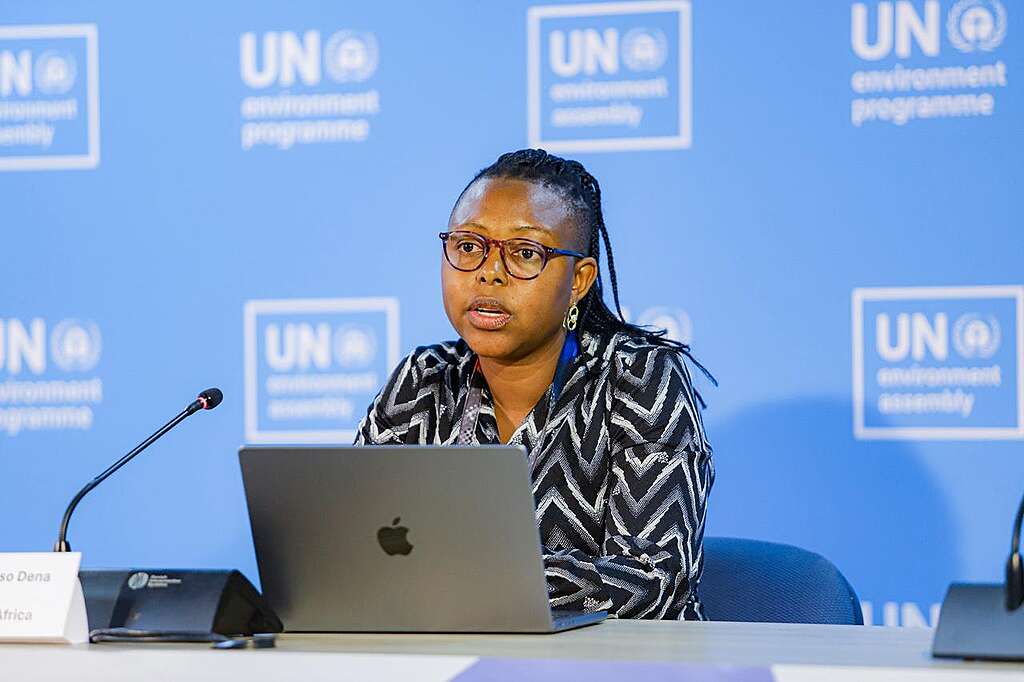
Our health, livelihood and planet are at stake due to the worsening climate crisis. In February last year, a severe tropical cyclone Freddy made its first landfall in Southern Africa leaving more than 1000 people dead and a trail of destruction in its wake after ripping through Malawi, Mozambique and Madagascar. In recent years, the world has faced three most pressing environmental issues namely climate change, pollution and biodiversity loss simply referred to as the triple planetary crisis. All the three crises have different causes and effects – and often overlap – but one thing in common, plastics.
Plastic production continues to wreak havoc as 99% of plastics begin as fossil fuel. Greenhouse gases are emitted at each stage of the plastic life cycle further driving the climate crisis. Humanity is indeed facing a triple planetary crisis. If no measures are taken, plastic production is set to quadruple by 2050. The growing plastic production is a major problem for communities in Africa that are experiencing some of the damaging impacts of the climate crisis: flooding, sea level rise and more extreme weather events like hurricanes. A plethora of human health impacts are associated with plastics exposure.
Plastic production has a particularly harsh impact on low-income and marginalised communities across the globe and is associated with health problems such as cancer and asthma. These adverse health effects are stemming from petrochemical plants, landfills, contaminated water bodies and the incineration of plastic waste. Yet, major corporations are disregarding these consequences and evading their responsibilities.
Unfortunately, oil producing countries are actively derailing the Global Plastics Treaty negotiations with the aim of watering down the ambition and focussing on the downstream measures as opposed to cutting down plastic production.
A plastic-free future is possible if African governments stand up against the corporate capture by international oil companies that make massive profits out of plastics at the expense of the wellbeing of people and the planet. Plastic pollution requires a solution that matches the scale of the problem, which is not only critical but non-negotiable.
Going into INC-4 in Canada this April, we hope to see bold and more ambitious actions from the High Ambition Coalition, including the African group, to put an immediate cap on plastic production in the struggle to ultimately end this crisis. Member states need to forge a way forward without fossil fuel producers dictating the terms of negotiations.
To keep the global temperature rise below 1.5°C, it is critical that the treaty must cut plastic production by at least 75% by 2040. This should be followed by a phasedown in the production and use of plastic and deliver a just transition for waste pickers and other workers across the entire life-cycle- from extraction to use, distribution and disposal. This means accelerating the end of our fossil fuel addiction. Ending the corporate addiction to single-use plastic is an important part of moving away from fossil fuels, combating climate change, pollution and protecting communities.
Governments need to demand a treaty that will keep oil and gas in the ground and stop big brands and big oil from producing more and more plastic. A treaty that does not stop runaway plastic production will fail. The treaty should be firmly rooted in a human rights-based approach that reduces inequality, prioritises human health in order to mitigate further harm.
As we continue to engage in the treaty negotiations, it is imperative for member states not to echo the interests of the petrochemical industry. We must avoid allowing oil-producing nations, acting on behalf of big oil and petrochemical corporations, to dominate, obstruct, or dilute the treaty discussions and diminish its ambition. The high ambition countries need to push back and ensure that negotiations are within the UNEA 5.2 resolution.
African governments must do everything in their power to champion a treaty that prioritises cuts in plastic production for our health, the climate and the planet! The world won't win a strong Global Plastics Treaty until we stop low ambition countries from sidelining negotiations in the name of fossil fuel greed and corporate profits. And Africa has a big role to play in these crucial negotiations. While we acknowledge Africa's leadership in the fight against plastic pollution, we need to see more African countries actively moving talks forward during the negotiations.
It's time for Africa's governments to take bold action, stop sitting on the fence and join the group of member states calling for more ambition in the Global Plastics Treaty. For the sake of our future and that of our children, Africa's leaders cannot afford to waste this once in a lifetime moment to close this tap and ultimately end the age of plastics.
A version of this op-ed was originally published by Business Daily on 27 February 2024.
Hellen Kahaso Dena is the Pan-African Plastics Project Lead at Greenpeace Africa based in Nairobi, Kenya.






